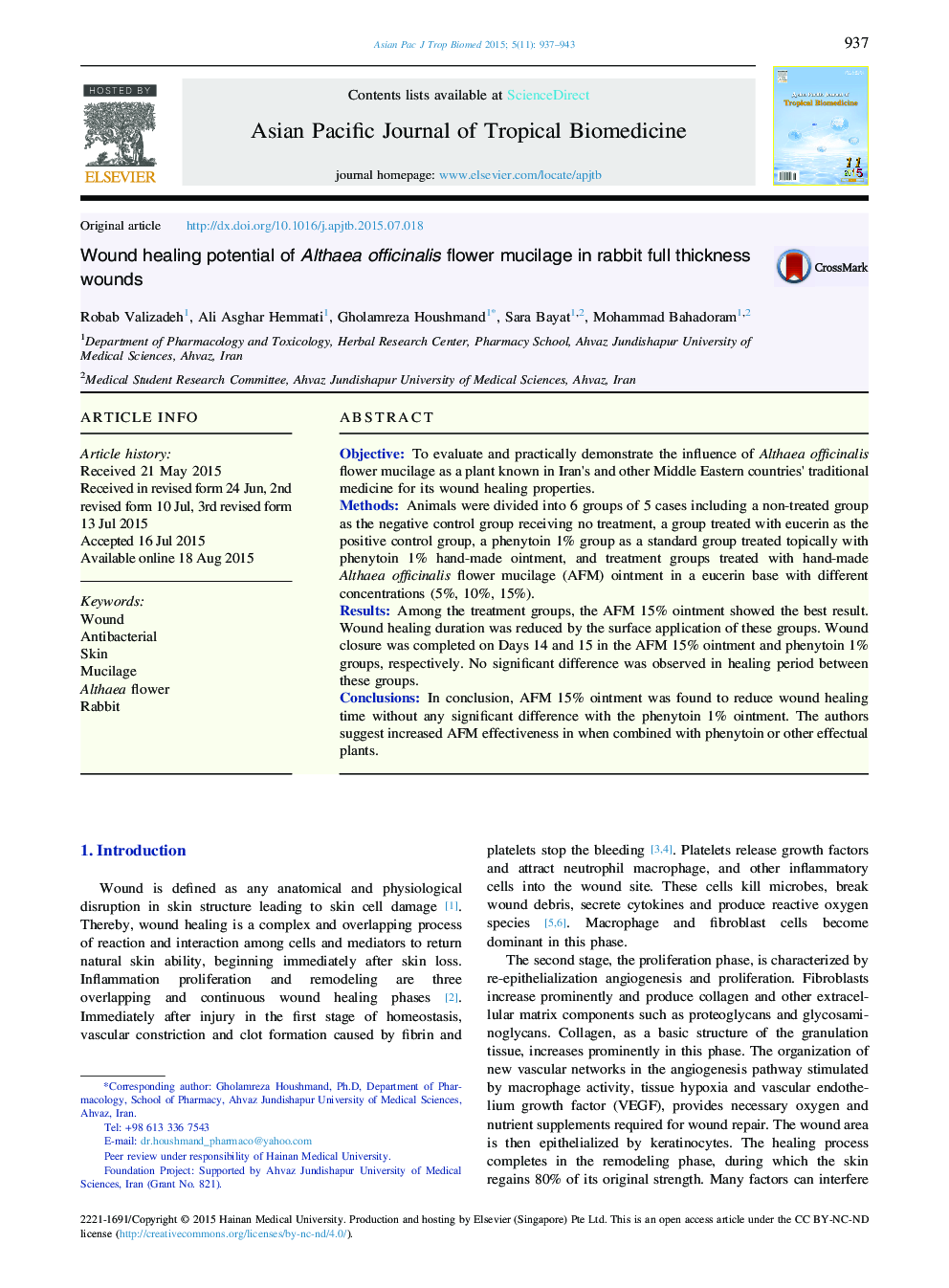| Article ID | Journal | Published Year | Pages | File Type |
|---|---|---|---|---|
| 2032390 | Asian Pacific Journal of Tropical Biomedicine | 2015 | 7 Pages |
ObjectiveTo evaluate and practically demonstrate the influence of Althaea officinalis flower mucilage as a plant known in Iran's and other Middle Eastern countries' traditional medicine for its wound healing properties.MethodsAnimals were divided into 6 groups of 5 cases including a non-treated group as the negative control group receiving no treatment, a group treated with eucerin as the positive control group, a phenytoin 1% group as a standard group treated topically with phenytoin 1% hand-made ointment, and treatment groups treated with hand-made Althaea officinalis flower mucilage (AFM) ointment in a eucerin base with different concentrations (5%, 10%, 15%).ResultsAmong the treatment groups, the AFM 15% ointment showed the best result. Wound healing duration was reduced by the surface application of these groups. Wound closure was completed on Days 14 and 15 in the AFM 15% ointment and phenytoin 1% groups, respectively. No significant difference was observed in healing period between these groups.ConclusionsIn conclusion, AFM 15% ointment was found to reduce wound healing time without any significant difference with the phenytoin 1% ointment. The authors suggest increased AFM effectiveness in when combined with phenytoin or other effectual plants.
